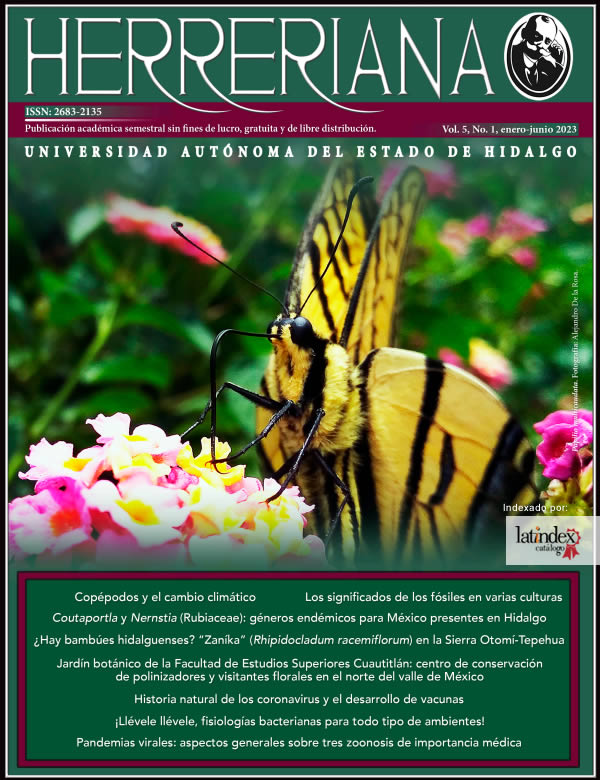Copepods and climate change
Abstract
In the oceans there is a large and diverse group of small aquatic crustaceans, the copepods. Although we cannot see them with the naked eye, they are very important in maintaining the balance of nutrients and energy in the seas. However, the effects of climate change, such as rising temperatures in the sea, can affect copepods. Several studies have shown that functions such as reproduction, development and growth can be altered, and in severe cases they can even die. The study of copepods has given us clues to predict the effects of climate change on the oceans. For that reason, is interesting learn more about copepods and their relationship with climate change.
Downloads
References
Brennan R. S., Mayo J. A., Dam H.G., Finiguerra M., Baumann H., Buffalo V., Pespeni M. H. 2021. Experimental evolution reveals 1 the synergistic genomic mechanisms of 2 adaptation to ocean warming and acidification in a marine copepod. BioRxiv. 466754. En el texto se referirá como (Brennan y colaboradores, 2021).
Bron, J.E., Frisch, D., Goetze, E. et al. 2011. Observing copepods through a genomic lens. Front Zool 8, 22. https://doi.org/10.1186/1742-9994-8-22
Han J., Lee M., Park J.C., Kim S., Lee J.S. 2018. Effects of temperature shifts on life parameters and expression of fatty acid synthesis and heat shock protein genes in temperate and Antarctic copepods Tigriopus japonicus and Tigriopus kingsejongensis. Polar Biology. Doi: https://doi.org/10.1007/s00300-018-2382-6. En el texto se referirá como (Han y colaboradores, 2018).
Richardson AJ. 2008. In hot water: zooplankton and climate change, ICES Journal of Marine Science, 5 (3), 279–295. Doi: https://doi.org/10.1093/icesjms/fsn028
Smolina I., Kollias S., Moller E.F., Lindeque P., Sundaram Y.M., Fernandes M.O., Hoarau G. 2015. Contrasting transcriptome response to thermal stress in two zooplankton species, Calanus finmarchicus and C. glacialis. Marine Ecology Progress Series. 534: 79-93. En el texto se referirá como (Smolina et al. 2015).
Tarrant A.M., Nilsson B., Hansen B.W. 2019. Molecular physiology of copepods – from biomarkers to transcriptomes and back again. Comparative Biochemistry and Physiology. Part D 30: 230-247. En el texto se referirá como (Tarrant et al. 2019).










